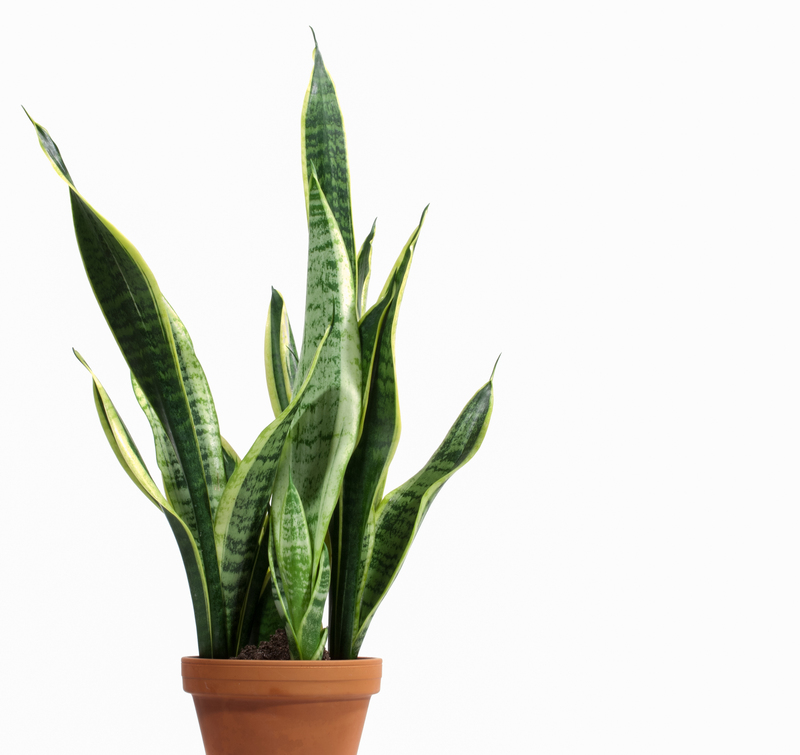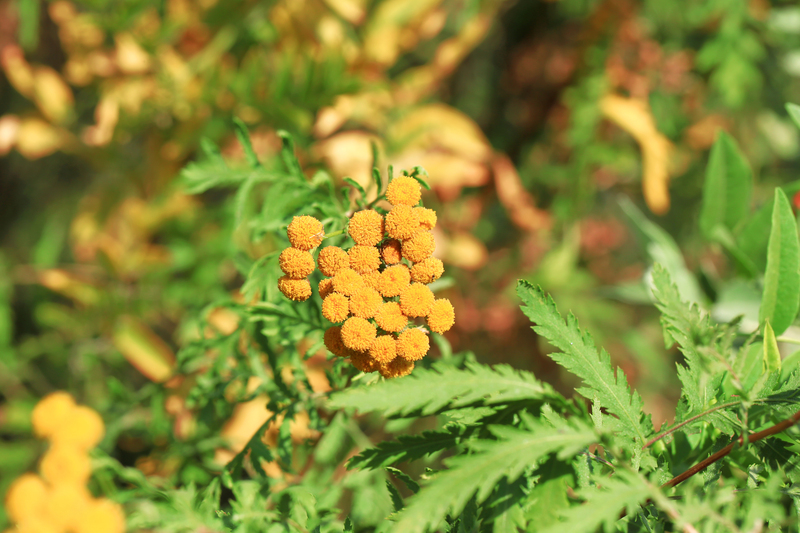Master the basics with these 9 gardening tips for newcomers
Posted on 25/05/2025
Master the Basics with These 9 Gardening Tips for Newcomers
Are you eager to start your own garden but not sure where to begin? Gardening can seem overwhelming, especially for beginners, but don't worry. With a bit of knowledge and preparation, you can cultivate a stunning outdoor space or a thriving indoor haven. Whether you're growing flowers, vegetables, or herbs, mastering the fundamentals of gardening is essential. In this comprehensive guide, we'll walk you through nine essential gardening tips aimed especially at newcomers. These practical steps will help you build your confidence as you transform your gardening vision into reality.
Why Learn the Basics of Gardening?
Understanding the fundamentals of gardening is the key to creating a healthy and productive garden. By learning the basic principles, you set yourself up for success, minimize mistakes, and ensure your plants can thrive. Whether your goal is to beautify your yard, reduce your carbon footprint, or simply enjoy homegrown produce, these beginner gardening tips will help you start strong.

1. Choose the Right Location for Your Garden
The success of your garden depends largely on its location. Most plants require 6-8 hours of sunlight per day, so select a spot that receives ample sunlight. Watch how the sun moves across your yard or balcony, and avoid areas with heavy shade if you're planning to plant sun-loving species. For shadier spots, choose plants like ferns, hostas, or shade-tolerant herbs. Remember, access to water and good drainage is equally important for healthy plants.
Tips for Picking the Best Spot:
- Observe Sunlight: Track how much sun different spots get throughout the day.
- Check Soil Drainage: Avoid soggy areas where water accumulates after rain.
- Easy Water Access: The closer to a water outlet, the better!
- Consider Proximity: Pick a spot you can see easily - you're more likely to care for your garden regularly.
2. Know Your Soil - The Foundation of Any Garden
Soil is more than just dirt--it's a living ecosystem that supports plant growth. Take time to analyze your soil: is it sandy, clay, or loamy? Is it acidic or alkaline? You can purchase basic soil test kits at gardening centers to identify soil pH and nutrient levels. Good soil preparation will boost your garden's productivity from the start.
Enhancing Your Soil for Success:
- Add Compost: Organic matter like compost improves soil structure and fertility.
- Mulch: Mulching conserves water, regulates temperature, and controls weeds.
- Lime or Sulfur: Adjust soil pH according to your plants' needs with lime (raises pH) or sulfur (lowers pH).
- Aerate: Break up compacted soil to help roots grow and water penetrate easily.
3. Start Small with Your First Garden
One of the best gardening tips for newcomers is to start small. Instead of planting a vast area, begin with a manageable space--a couple of raised beds, a container garden, or a small plot in your backyard. This allows you to learn gradually without feeling overwhelmed.
Why Small Gardens Are Better for Beginners:
- Easy Maintenance: Less area means less weeding, watering, and tending.
- Fewer Mistakes: You're less likely to be discouraged by failure when you manage a smaller area.
- Quicker Results: See the fruits of your labor sooner and build confidence.
- Experimentation: Try different plants and techniques without big commitments.
4. Choose the Right Plants for Your Growing Zone
A garden's success is closely tied to whether you pick plants suited to your climate and soil. Research your USDA hardiness zone or regional growing guide to discover what thrives locally. Opt for easy-care plants like lettuce, radishes, marigolds, or sunflowers for your first attempts. Native plants are often less demanding and more resistant to pests and diseases.
How to Pick Plants for Beginners:
- Read Plant Tags: Follow the recommendations for light, soil, and space.
- Go for Proven Winners: Start with robust, productive, disease-resistant varieties.
- Group by Needs: Plant together those with similar water and sun needs.
- Ask for Advice: Visit your local garden center and ask what's best for beginners.
5. Master Watering Techniques
Proper watering is key to healthy, flourishing plants. Over- or under-watering is one of the most common mistakes among beginner gardeners. Most garden plants prefer deep, infrequent watering to shallow, frequent splashes. The goal is to encourage strong root development by ensuring water reaches several inches below the soil surface.
Watering Wisely: Essential Tips
- Water in the Morning: This prevents fungal diseases and gives plants a moisture boost before midday heat.
- Avoid Wetting Leaves: Water directly at the base to reduce the risk of disease.
- Check Moisture: Poke your finger an inch or two into the soil; if dry, it's time to water.
- Invest in Tools: Soaker hoses, drip irrigation, or watering cans help distribute water evenly.
6. Learn Healthy Plant Spacing
Crowding plants is a common beginner gardening mistake. When plants are too close together, they compete for nutrients, water, and sunlight, leading to poor growth and increased vulnerability to pests and diseases. Always follow spacing instructions on seed packets or plant tags for best results.
Smart Spacing Strategies:
- Use a Ruler: Literally measure distances when planting seeds or seedlings.
- Plan Layouts: Draw a simple map before planting in the ground or containers.
- Thinning: For densely-sown crops like carrots, remove excess seedlings early.
- Allow for Growth: Remember, tiny seedlings can become large, bushy adults!
7. Feed and Mulch Your Plants
Just like people, plants need nourishment to flourish. Regular feeding with the right fertilizers gives them the energy to grow and fruit. Mulching, meanwhile, helps suppress weeds, retain soil moisture, and add organic matter as it decomposes. Beginners who feed and mulch their gardens often enjoy better results.
Beginner Feeding & Mulching Tips:
- Organic Fertilizers: Compost, manure, and worm castings are gentle and effective.
- Slow-Release: Use granular, slow-release feeds for low-maintenance nutrition.
- Mulch Depth: Apply a 2-3 inch layer of straw, bark, or shredded leaves around plants.
- Avoid Overfeeding: Follow label instructions to prevent burning plant roots.
8. Keep Ahead of Weeds and Pests
Learn to protect your garden early on! Weeds compete with your plants for space and nutrients, while pests can devour young shoots overnight. Regularly check your garden for invaders, and take prompt action when you spot trouble. Choosing organic and eco-friendly pest control options protects both your plants and the environment.
Essential Weed and Pest Control:
- Weed Early: Remove weeds by hand when they're small to avoid seed spread.
- Mulch as Barrier: Mulch keeps sunlight from reaching weed seeds, reducing growth.
- Encourage Beneficials: Attract helpful insects (like ladybugs) to control pests naturally.
- Inspect Regularly: Check both sides of leaves for early signs of trouble.
9. Keep Learning and Enjoy the Process!
The final tip for new gardeners? Be patient, observant, and willing to learn. Gardening is part science, part art, and a little trial and error is normal--every gardener, from novice to expert, learns with every season. Join local gardening clubs, follow online forums, or read books to expand your knowledge and connect with like-minded enthusiasts.
How to Grow as a Gardener:
- Keep a Gardening Journal: Record successes, failures, and observations.
- Ask Questions: Don't hesitate to seek advice from experienced gardeners.
- Try New Things: Experiment with unfamiliar plants or techniques each year.
- Celebrate Small Wins: Enjoy every new bloom or harvest, no matter how small.

Bonus: Frequently Asked Questions for Beginner Gardeners
-
How do I pick the best gardening tools for beginners?
Start with the basics: a trowel, pruners, gloves, a watering can, and a garden fork. Quality over quantity is key! -
How often should I fertilize my garden?
This depends on the type of plants and fertilizers, but monthly feedings with a balanced, organic fertilizer usually suffice for beginners. -
What if my plants aren't growing?
Check light, water, soil, and nutrients first. Adjust one factor at a time to see what helps.
Conclusion: Your Gardening Journey Awaits
Mastering the basics of gardening sets the stage for a rewarding hobby that brings beauty, flavor, and vitality into your daily life. With these 9 gardening tips for newcomers, you'll sidestep common beginner pitfalls, nurture healthier plants, and gain the confidence to expand your gardening horizons. Remember, the true joy of gardening comes from the ongoing journey of growth and discovery. Roll up your sleeves, experiment, and enjoy every step of creating your personal green sanctuary!
For more in-depth gardening guides and expert tips, bookmark our site and subscribe to our newsletter. Happy gardening!
Latest Posts
Harness the power of vertical gardening
Top Picks: Garden Tools for Outdoor Enthusiasts
Shield Your Garden from Winter's Chill

